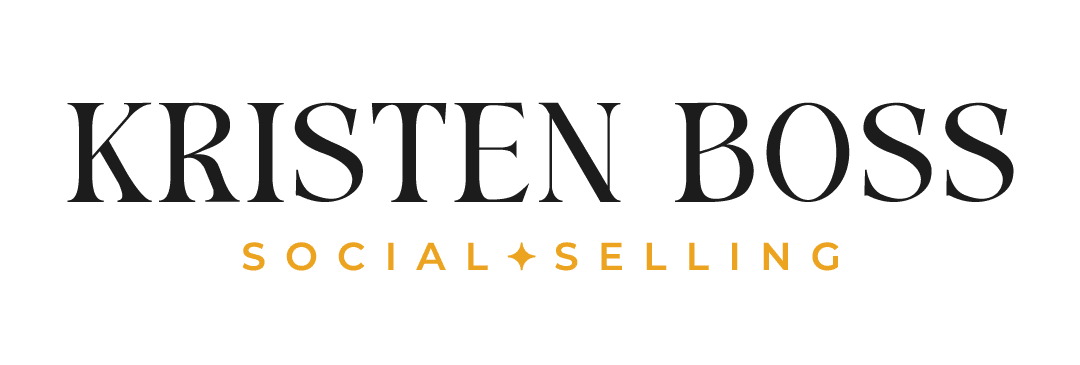It’s time to get serious about your business goals! Kristen is starting a 2-part series on goals and in today’s episode she’s covering the reasons why you’re not setting big goals in your business. She wants to challenge and change your perception and your thoughts about these reasons so that you can set healthy goals that you can achieve!
She’ll cover:
- Goal shame
- Goal avoidance
- How dating and setting goals in our business feel the same
- Safe goals
- The main emotions that hold us back and why
- Goal hangovers
- Why we need to be more like NASA when setting our big business goals
And so much more!
Thanks for listening! Do you have a question about network marketing? Kristen can help! Drop your question here, and she just might answer it live on the podcast: https://kristenboss.com/question
Connect with Kristen:
Do you have a business full of customers and almost no builders? You’re in need of a reboot! Learn the three skills you can learn that will completely change your recruitment game. Check it out here.
If you’re ready to learn the simple process of running your social selling business online, you have to check out Kristen’s live group coaching program! The Social Selling Academy: www.thesocialsellingacademy.com
Interested in Kristen’s exclusive mastermind for six-figure earners in the network marketing industry? Get all the details and join the waitlist here.
Transcript for Episode #9: Goals: Part One
Kristen Boss (00:05): Welcome to Purposeful Social Selling with Kristen Boss. I’m your host, Kristen Boss. I’m a mindset and business coach with more than 15 years experience in both the product and service based industry. I believe that social selling is the best business model for people wanting to make an impact while they make serious income. This is the podcast for the social seller, who is tired of feeling inauthentic in their business and desires to find a more purposeful and profitable way of growing their business in today’s social media landscape. In this podcast, you will learn what it takes to grow a sustainable business through impactful and social marketing. It’s time to ditch the hustle and lead from the heart. Let me show you the new way. Hey, Hey, welcome back, my friends. I’ve got another one hot off the press for ya.
Kristen Boss (00:55): So funny story, you guys know if you’ve listened to any of my episodes up until this point you know my feelings about authentic, sincere, meaningful marketing. And it’s been a hilarious weekend because someone sent me on Facebook, a very cold, super awkward cold message, and I decided to engage with it. And I just asked one question. I said, how long have you been with your company? And what proceeded was immediately three, one-minute voice messages of her, literally just verbal vomit all over m., Product ingredients, the opportunity, the comp plan. This is the best thing ever. And like offering to get on a call. Let me show you. And I’m like, oh no, oh no, no, no, no, no. And so I turned it right back around. I said, actually, if you looked at my profile, you would see that I actually teach how to do attraction marketing. So you don’t have to send cold messages like this.
Kristen Boss (02:14): Would you be interested in learning how? And so I shared the cold message that was sent to me. Of course, I like blanked out the person’s name and their identity just to protect them because I’m not interested in bullying anyone. But I shared it in my Facebook community and it was probably the most hilarious comment thread ever in there say there’s like almost 200 comments and my, my community in there, they know like what I teach on this. They know my feelings and you know, those memes where it’s, you know, people, it’s the, just here for the comments and they’re eating the popcorn. Hilarious. It was so much fun, which brings me to tell you if you’re not in my free Facebook community, get your booty in there because I’m always dropping such fun, free, valuable content. And one of my favorite thoughts I love having about my community.
Kristen Boss (03:16): And I would encourage any of you to use this thought about your own content, what you’re putting out there. But a favorite thought I love to have about my group is what would it look like? Or what would my value have to bring? What can I give to my audience that could provide transformation on some level, even if they never buy a thing for me, how can I provide transformation to my group on some level, even if they never buy a thing for me, that’s a really powerful thought and I love it because it’s a really abundant thought? It’s literally saying I don’t need anything from my community. I deeply love showing up for them and serving them. It’s a fun place to be. So if you’re not in there, get in there. Okay. So I’m actually getting ready. I’m about to leave on a really intensive business mastermind retreat next week.
Kristen Boss (04:20): And I’m going to be heavily immersed in making serious decisions for my business and not just for the next six months, but I’m actually going to be walking away from that retreat with a three-year plan for my business. And I just think that’s so important because as entrepreneurs and as solopreneurs, oftentimes I think we get really caught up in the day-to-day, the monthly goals. And we’ve lost sight of the long-term vision. And the reason why long-term vision is so important for your business is that it informs your daily actions. It informs your decision-making. It helps you decide very clearly does this certain action activity or plan aligns with my long-term vision. If it doesn’t, we can say no to it from a place of joy and trust and be like, no, I’m trusting this, this vision I have. So I’m so pumped to spend the time to do the deep work setting goals.
Kristen Boss (05:29): And I am so excited to see how things are going to shift for me and how that’s going to shift the content I bring to you, how I serve you as my audience. And probably in another episode, I’ll talk about that mastermind experience and how simply applying for the mastermind and what the application process looked like. For me, it was so deeply transformative for my helping my abundance mindset strengthening my investment muscle, and really helping elevate how I serve my clients and my community. So I’ll talk about that in another episode, but speaking of goals, this is going to be a two-part series, all about goal setting. And if you’re a listener, I mean, who doesn’t want to have goals in their business at some point or another, you’ve either had a goal or you have a goal. And I feel like it’s language.
Kristen Boss (06:32): We use a lot in this industry. And I was noticing, I said this statement in my community and I realized how the response it got. I realized, you know, I think I need to do a couple of episodes on this. And I was talking about the avoidance of setting goals for fear of experiencing disappointment with a missed goal. And I said, goals not set or goals not met. And the response I got was really interesting. I’m like, you know what, I’m going to explore this. And I’m going to unpack this for you, my listener, because I really want you to have a really healthy mindset around goals and that’s going to be part two. But part one is I actually want to help set the stage for talking about the hard part of setting goals. I want to talk about the feelings as entrepreneurs. We experience around setting goals and having a vision and wanting to do big things and have big dreams for our business.
Kristen Boss (07:47): And I want to talk about what I’m calling goal shame. There’s something called goal shame and there’s, and there’s a few different types of goal shames, but goal shame and unpacking two emotions, disappointment, actually two emotions, shame and disappointment, and then a thing failure. We’re going to talk about those three things. And my goal for you after this episode today is for you to change your perception and your thoughts about those three things so that you can set healthy goals that you achieve. So I hope you’re ready. I’m so excited to give this to you. I, by the way, the success thoughts episode, before we get into goals, the success thought episode, if you have not listened to it, go listen to it. I am getting so many messages on Facebook. I’m getting texts. I’m getting screenshots of people who literally experienced results on some level with their business after they listened to that episode and used a few thoughts.
Kristen Boss (08:58): I have a couple coaches that had their highest closing months ever. I had someone that closed their first huge high ticket deal. I had a friend of mine who got literally 26 new customers in a single day in her business. And everyone’s like, wow, what are you doing? What are you doing? And she’s like, these are the thoughts I had. These are the thoughts I had. So go listen to it because having success thoughts are going to really help you shape healthy goals. But before we get there, let’s unpack shame, disappointment, and failure. Okay. So I was talking about goal shame just a few seconds ago, and there’s a few types of goal shame, but I really think it’s important as entrepreneurs, as business owners that we learn to deal with disappointment. And we have to understand that disappointment is an inevitable part of our experience as a business owner, just like you’re going to experience joy and celebration.
Kristen Boss (10:14): You’re going to experience disappointment. If you haven’t already on some level at some point in your business and how you view shame, disappointment and failure is what creates what I call shame-based goals. What shame-based goals. Yeah. So the first one is I call these the safe goals. They are goals that you engineer in some way where, you know, like it’s a guaranteed outcome. You know, when you set the goal, you know that it’s like you’re engineering the win, you know, it’s already coming. It doesn’t feel like a stretch at all. It feels emotionally comfortable for you to set the goal. And it also feels emotionally comfortable for you to miss the goal. You have no emotional investment in the goal. That is actually not a goal. That’s called a risk aversion plan. It’s what is the minimum amount I will commit myself for without feeling afraid of the emotional risk.
Kristen Boss (11:34): This is going to create for me emotional risk in the sense of, I, I don’t want to risk experiencing the experiencing feeling of failing of disappointment or sadness. It’s a goal you engineer to avoid risk, safe goals, that’s type number one. Number two is what I call goal aversion or goal avoidance. And this is when you have stopped. Like you won’t even set a goal. It’s been a long time since you’ve set a goal because you are filled with terror of experiencing the disappointment of a mystical the narrative. You’re asking yourself when, if you have goal avoidance, you’ll know when the primary question you’re asking yourself is, well, what if I fail? What if I miss it? I don’t because you’re terrified of experiencing the feelings associated with a missed goal. So in order to emotionally protect yourself from those feelings, you just don’t set a goal at all. So it’s not even a small goal or a safe goal. It’s just, you’ve stopped setting goals because you’re afraid to hope. You’re afraid to put yourself out there.
Kristen Boss (13:01): And on the last episode, I talked about, I used Bernays Bernay Brown’s definition of vulnerability, which is its capable of being wounded. And it’s opening yourself up for emotional exposure. That is also goal setting. I want you to think about that goal setting in its pure, like a real goal, where it is it requires, and it stretches you beyond your comfort zone is a form of vulnerability. And the opposite of vulnerability is shame. So in order to not experience shame over a missed goal, you choose to not be vulnerable and even setting the goal avoidance.
Kristen Boss (13:54): The next one is goal shame. It’s just straight up goal shame. And this is when you have set a goal, you go for it and now you’ve missed it. You’re sitting on the other side of the missed goal. And this is where you are consumed with missing the goal. What people think of you, what you think of yourself, what you think of your business, you experience all this shame and judgment, and you’ve created this sad narrative of missing your goal. This is when you’ve just labeled yourself as a failure and you want to, and you want to like curl up in a ball and, and not. And that’s when that’s when you decide to either never set another goal again, because you don’t want to experience disappointment or you, you negotiate with your next goal and you say, okay, I’m going to go smaller next time to ensure my success. So I don’t feel that again.
Kristen Boss (14:59): So you literally then adjust your goals and make them smaller because of your feelings around a missed goal. The next one is what I’m going to call a goal hangover. A goal hangover is when you set this audit and you hustle your booty off and you and you guys know if you listen to episode one, we’re anti hustle here, right? We’re anti hustle. And one episode, I’m going to talk about the difference between working hard and hustling, because there is a difference, but this is when goal hangover is when you have gone a hundred miles an hour and you just grinded your way to the very end you cross the finish line on fumes. And you were sitting on the other side of a goal that you have competition, but it costs you everything to accomplish it. You’re exhausted. You are completely burnt out. You want to not touch your business for a couple of weeks.
Kristen Boss (16:09): You want to go and binge on some Netflix. You want to hide from your business because you’re so, so fatigued. You’re so exhausted. It costs you everything. Emotionally, mentally relationships with your family, your health, you can feel it in your body. This goal hangover, like I hit it, celebration and then crash. And depending on the person, I know people that when they have the goal hangover, the hangover can last for months or years because here’s what happens with a goal hangover. The brain looks at what happened and thought. And you start to think one of a few things, how will I ever maintain this? It costs me everything. And I am so tired. How do I keep this?
Kristen Boss (17:14): The next is, how can I ever do this again? This is huge. When I see people that have the goal hangover for a long time, the reason why, why they don’t want to, and then what happens is their business starts to suffer because they’re hungover from that goal. They’re tired. They’re exhausted. And I, I mean, adrenal fatigue body literally cannot. This happens. We need to talk about this. Adrenal fatigue is something that I hear about all the, with a top-earning people in their, in their companies, even really high-performance coaches where they’re just creating course after course or launch after launch, after launch. That’s huge. I mean, that’s big in the coaching world is like, I’m going to call it launch fatigue, where they do these huge launches for a big, big launch. And then they’re exhausted for months. And here’s what happens is there is a part of your brain when that never wants to experience that again because you literally physically suffered to have that outcome.
Kristen Boss (18:25): So when you look at the outcome when you’re thinking about the next goal, you’re equating in your mind, the next goal is going to feel the same way because, in your brain, you’ve thought you’ve taught it. When we hit big goals. It’s, we’re gonna, it’s gonna be late nights, very little sleep, probably not eating very well. Not seeing your family emotionally tired. Your brain is like, well, we got, that’s what we did last time. So it doesn’t know any other equation to meet a big goal. So of course your subconscious is going to fight you in going for the goal ever again, because your body’s like, no, no, no. Remember when we did that last time, that was miserable. And I know so many people that have this, this goal hangover from their business or success hangover from their business, they hustled their way to this huge goal.
Kristen Boss (19:19): Typically it’s the six-figure mark in the network marketing world, or the six-figure mark with like a six-figure mark launch with coaches and they get there. And then they’re so tired and they have zero motivation to do it again because they hate how it felt when they got there the first time. So then they have this aversion to wanting to work their business again. And they either will have goals from there. They’ll either have goal avoidance, safe goals, experiencing goal shame. Another question that happens with goal hangover or success hangover is you start to believe that you’ll never be able to recreate it again. You start to believe it was a fluke. Your brain starts to freak out. As soon as it happens, like, will I ever be able to do this again? How can I ever recreate this? This, this cost me everything.
Kristen Boss (20:23): So when we are afraid to experience shame or disappointment or failure, that is what we, those are the areas we tend to go with our goals. So based on that, I think it’s really important. I really want to do a deep dive on disappointment. And I want to talk about it as just like your success is inevitable. Like I’ve encouraged you to have the thought of your success being inevitable. I also want you to view disappointment is inevitable as well. You’re going to experience it. It is a part of the growth process. Nothing has gone wrong when you experienced disappointment, nothing has gone wrong when you’re disappointed. I know that might sound weird. You’re like, but wait, if I’m disappointed, it’s because something has gone wrong. But when you are in business, things go wrong. Things don’t go to plan.
Kristen Boss (21:38): There is no formula. That’s like one plus one equals two in the like, there’s no formula success. That’s that simple in black and white. It’s different for everybody, which means you’re going to experience disappointment on your way. There. I see so many business owners that are truly terrified. They’re afraid to feel disappointment. They’re afraid to feel it they’re afraid. And I kind of almost liken it to, to heartbreak in relationships. Now man, I’ve got some stories about relationships in my younger days. Woo. But I remember when you give it everything, you, you pour your heart out. You, you just open yourself up to be seen to be loved. Again, just like goal setting is emotional risk and it’s a form of vulnerability. So is, so is love. Giving someone love is a form of vulnerability, vulnerability, and emotional risk. So in the world of heartbreak and bring it back to disappointment and business is we, we open ourselves up and we get heartbroken, and being afraid of disappointment in business is very similar to someone who’s terrified of having their heartbroken again.
Kristen Boss (23:00): And so they live, they start shutting down, they start being very guarded, distrusting. They have a lot of walls that make it harder for someone who wants to love them, to love them. I mean, hello, how many episodes of the bachelor and the bachelorette have we seen? Like how many episodes of the bachelor, the bachelorette have we seen? We see it every, every season I’m giving away my, my, you know, trashy TV secrets. Actually, I haven’t watched them in a long time, but there’s always the one person who the contestant, the bachelor or the bachelorette is falling for someone. And that person refuses to open themselves up to emotional risk because they’re so afraid of feeling disappointment and heartache and rejection. And then what happens, they end up getting sent home because the contestant is like, we’re not getting anywhere. We do the same thing in our business.
Kristen Boss (24:07): We’re so afraid of feeling acute disappointment from a missed goal that we decide to live in prolonged disappointment of never reaching the goal at all. Think of that. We choose because we’re so afraid of the short-term pain and experiencing that disappointment that we don’t even set goals in order to reach the outcome we want. And if we never reached the outcome we want, we’re always living in disappointment. It’s just chronic. It’s at a low burn. It’s at a simmer. See what I mean? This is where we were. When we refuse to deal with disappointment, we’re literally delaying our success and the outcomes we want just like in the bachelorette and the bachelor. They want love. They came to the show for love, but they won’t open themselves up for love because they’re afraid of being hurt. And then they’re the ones crying in the limo feeling really hurt because they were trying to avoid being hurt and they got hurt. Right? Hurt is a part of the equation. Disappointment is a part of the equation.
Kristen Boss (25:22): So why are business owners afraid to feel or experience disappointment? I believe it’s a few things. One is they don’t trust in their own ability to handle or process a negative emotion. It’s the inability to trust themselves with handling or processing a negative emotion. And it could be because there are other areas in their life where they have not processed or handled negative emotions. If we are going to be in business, if we’re going to be leaders, we have to be able to process and handle and move through negative emotions. Another one is they see the emotion as fixed rather than temporary. I think this idea of disappointment as they feel like it’s always going to be there. They don’t trust their ability to feel and move through an emotion and be able to come out on the other side of the emotion. We’re so afraid of feeling it because we’re afraid if I feel it, how do I know I’ll ever get out of it? Emotions are temporary, but they become fixed when you refuse to address them.
Kristen Boss (26:51): And they become fixed when we suppress them and shoved them down because we all know they come back up. It’s like keeping up pushing a beach ball under in a pool. Have you ever done that? Where you’re like, tried to push it down? I feel like that’s what happens when we don’t trust ourselves to process our emotions and process necessary emotions and human emotions like disappointment and shame and failure, right? So it’s like, we’re shoving this beach ball down under the water and we’re wiggling. And it’s awkward because we’re so afraid of it coming to the surface. And then what happens? You guys know, as soon as it lets up it rockets out of the water, it, it complete it skyrockets. It comes out with explosive force. Your emotions are the same way. They start with just sitting on the surface of the water in a neutral state. It’s just sitting there. And when we become afraid to address it, we shove it under the water. And when we shove it, it eventually rockets out of the water, above the surface to be dealt with what we resist will persist. So it’s really important that you tell yourself and trust yourself to handle and process and move through an emotion such as disappointment. It’s not there to stay process it. Move on, move forward.
Kristen Boss (28:25): You have the ability to come back after experiencing a negative emotion. And maybe you need to look at some experiences or stories in your life where you’re like, oh, here’s a time when I came back from a negative emotion, I moved through it. And here I am. Therefore you have evidence with yourself to say, I can process and handle negative negative emotions. I think it’s important that you know, it’s safe for you to experience an emotion. I think sometimes we view emotions as unsafe. I can’t experience that I’m afraid of experiencing or feeling that emotion, but I really think it’s important on how you view emotions. For example, just because you feel disappointed does not mean you are a disappointment, just because you experienced failure. Doesn’t mean you are a failure.
Kristen Boss (29:36): We don’t have to take on our identity on emotions. We don’t have to take on our emotions and attach them to our personhood. Your emotions are what you feel, not who you are, which means that you are in control. You can process them and move through them. You’re probably like, whoa, Kristen, I did not expect a therapy episode, but it’s so important. We talk about this because if you can trust yourself to experiencing things like rejection and disappointment and shame and failure, if you can trust yourself to experience and process negative emotion, then you will start setting goals that scare the crap out of you. And they’re not going to destroy you. If you don’t hit that goal in the time that you set for yourself, just because you didn’t hit a goal on the timeline you want doesn’t mean you should throw the goal away.
Kristen Boss (30:50): It just means maybe it wasn’t the right timing. And we’ll, we’ll talk about next episode. We’ll talk about what are the things you need to have in place. And what does a healthy and aligned goal look like? We’ll talk about that, but I want to help prepare your brain to set goals so that you’re not afraid to set them anymore, or maybe reset a goal and come back from a place of disappointment and burnout and be able to enter back into the arena with some confidence. Are you denying yourself the permission to feel emotion? You need a permission slip. Here you go. Here’s your permission slip today. You’re allowed to go feel emotion and it’s okay. It’s not all consuming. Acknowledge it.
Kristen Boss (31:42): Journal journal, man. Journaling’s an amazing thing to do. So a couple of questions I want to ask you about missed goals and failure, because we just did a real deep dive on disappointment. But let me ask you, what are you making a missed goal mean? A missed goal is just a missed goal until you make it mean something or you making it mean something about you. Are you making it mean something about others or is it simply just a missed goal? What are you making failure mean? Failure is just missing the outcome or intended objective. It’s just not meeting a desired or intended objective. Think about that. That’s what failure is. All it is, is not meeting a desired outcome or intended objective. And somehow when people experience not meeting the desired outcome or the intended objective, it becomes a personal issue of like, I suck I’m this something’s wrong with me? No, it just means that somewhere along in the process or actions that something misfired or went wrong or there was something missing, failure is just an outcome. It’s not an identity.
Kristen Boss (33:19): That’s not who you are. Let’s remove failure as an identity and simply embrace it as a thing we experience failure. It’s just a thing. And it’s also inevitable, just like disappointment. So as failure, one of my coaches, Stacy Baymon, she was talking about, and this mastermind we’re about to embark in. She talks about, we have two piles in our business. We have our really high, we have our success pile and we, all we want to do is fixate on how high our success pile is. And what she was also saying is on the other side is your fail pile is equal height to your success pile.
Kristen Boss (34:12): What does it matter if your fail pile is super high and your success pile is equally high. If you have a massive fail pile, but your success is a million dollars who cares how big the fail pile had to be to get there? I think we should start celebrating when, when our fail pile mounds up being like, woo, I know that my success pile is just going to match this. So this is exciting. My success pile is going to mirror my failure pile. So this is fun. Again, like I said, we failed, but we are not failures. We have to stop attaching it to our identity. What if instead of in your brain, if you’re like, yeah, but Kristen, don’t. My story. I’m a failure. What if you are a successful person who experiences failure?
Kristen Boss (35:15): Whoa, mic drop. What if you are a successful person who simply experiences failure, instead of you’re a failure who sometimes experiences success, it’s going to go on my book someday. Like that’s a big thing, right? And let me ask you something. It, failure is inevitable. If we treat failure as something that must happen in order to have the success we want, what would it look like to plan for failure? You have your goal plan and right next to your goal plan, you have your fail plan. Listen, NASA believes in failure. There is a reason why there is plan a, B, C a million operation manuals. If NASA believes in failure and plans for the inevitability of failure, even with putting all the work, to put the systems in place for success, you should plan for failure too. Can you imagine if NASA was like just super optimistic and they’re like, no, we’re just successful.
Kristen Boss (36:42): It’s fine. It’s great. We’re going to put a lot. We’re going to just going to put a lot of work. Imagine if NASA had the, like the hustle’s strategy, like, Nope, we’re just getting, we’re going to get a man on the moon. We’re going to get to Mars and we’re going to be super elaborate with our plan and we’re going to get there and something goes wrong. And the astronauts are like Houston, we have a problem where they’re like, oh, well that’s too bad because we didn’t plan for any problems. We planned for this to be a rip-roaring success. So good luck to ya.
Kristen Boss (37:14): If NASA needs a fail plan, you do too. If NASA plans for failure and knows it happens. We need to do the same. So what would it look like for you to plan for failure when you set your big audacious goal and a failed plan? I think there’s a couple of things I want you to ask yourself is writing down, maybe doing some journal prompts, welcome to another coaching session with Kristen, because I’m always giving my clients journal prompts. So here’s something for you to sit with today. What will you choose to think about yourself, your business, others, and your vision? If you fail meeting the expected or desired outcome this time, you are literally choosing your thoughts ahead of time. You were literally addressing and processing failure before it even happens. So that if it happens, you are not blindsided devastated, spiraling, and hiding behind a bowl of ice cream and Netflix for the next 60 days. Because if it should happen, you’re going to go to your field plan and say, okay, wait. I told myself, I would feel these things and experience things.
Kristen Boss (38:46): So ask yourself, what will I choose to think commit to an evaluation of what went wrong, evaluate what caused the failure. Instead of saying, I’m the failure, me, me, me, it’s like you can’t get over your identity. Look at the system as a whole and prod and poke until you can figure out what went wrong instead of why am I wrong? What’s wrong with me? No, it’s what went wrong and what do I need to do differently? So you’re going to pick your intentional thoughts. You’re going to plan to evaluate, and then you’re going to create a reentry plan. You’re going to create a new action list based on the evaluation of why you didn’t get the intended or desired outcome. Do you see how it’s so much safer to experience failure? When we view it from this light of you’re simply a successful person that experiences failure and failure is inevitable. And if NASA believes in failure and plans for failure, we do too.
Kristen Boss (40:09): Let’s stop avoiding it because we’re afraid to experience it. Let’s plan for it. Tell yourself that you are strong enough to experience the feelings that often come with failure. And you know that you are not your feelings. You’re simply feeling your feelings. They’re not there forever. And once you process and acknowledge the feelings you can learn and move on from them. So when you have a healthy viewpoint of negative emotions, like disappointment, shame, and failure, you’re going to be able to said to set confident goals that you are excited about and feel aligned with. And in the next episode, I’m going to tell you how to look for indicators of when you’re setting a healthy goal. And when you’re setting, setting a hustlely. I don’t know if hustlely is a word, but I’m making it a word. Healthy versus hustley. And there is a difference. And I’m going to help you next episode, create healthy, aligned goals. So this week create your fail plan, experience it, and we will catch you back on the next episode.
Kristen Boss (41:46): That wraps up today’s episode. Hey, if you love today’s show, I would love for you to take a minute and give a rating with a review. If you desire to elevate the social selling industry, that means we need more people listening to this message so that they can know it can be done a different way. And if you’re ready to join me, it’s time for you to step into the Social Selling Academy, where I give you all the tools, training, and support to help you realize your goals. In the academy, you get weekly live coaching so that you are never lost or stuck in confusion. Whether you are new in the business or been in the industry for awhile this is the premier coaching program for the modern network marketer. Go to www.thesocialsellingacademy.com to learn more.










